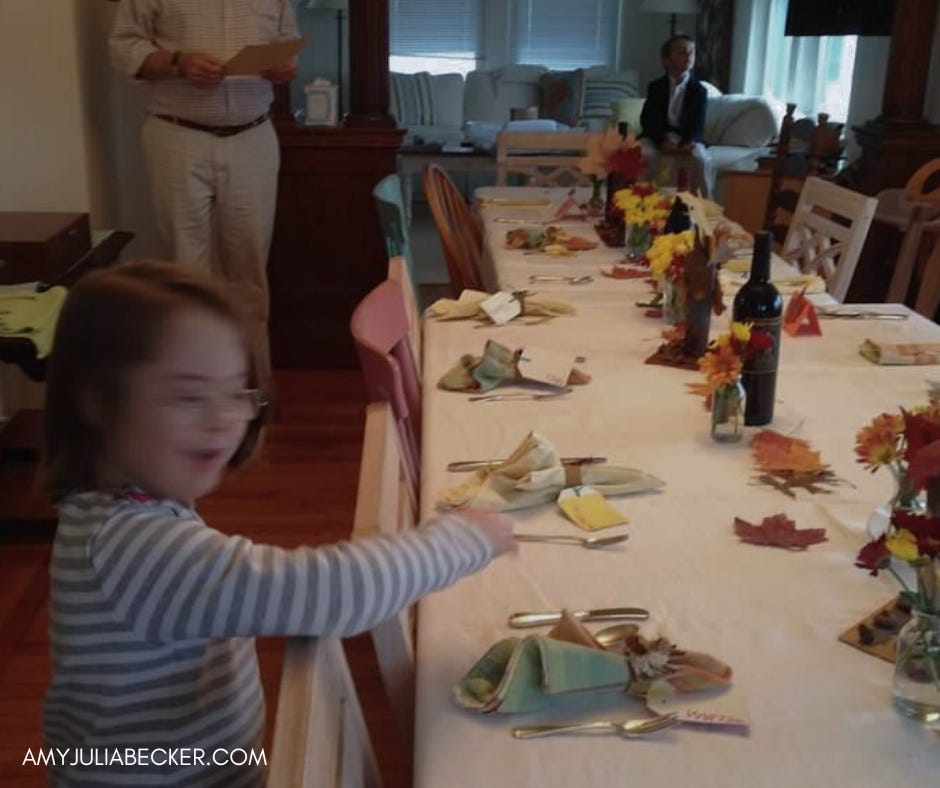After our most recent national election, I started wondering when/whether/how I should respond publicly to politics here in this newsletter or on social media. You might be thinking about this same thing as you imagine Thanksgiving dinner seated next to the relative who voted differently from you.
Why stay silent?
The argument for staying silent includes the thought that my voice won’t make a big difference, so why risk offending people or, in my case, losing “followers.” (As an aside, I found that every time I mentioned either candidate or their words or actions toward people with disabilities during the campaign, I lost followers and provoked controversy. I hope I also contributed something helpful. This held true even in a post about Penny voting for the first time without disclosing the candidate she selected.)

But I also need to heed the reality that I’m no expert on international conflict or the economy or climate change. Staying silent can demonstrate a proper humility, an awareness of all I don’t know, and a desire to learn from others, especially those with whom I disagree.
I don’t want to use my platform to advocate for a particular political party. I don’t want to increase division. And I don’t want to paint a portrait of conservatives or progressives as unilaterally right or wrong. Maybe it’s better to stay neutral.
The Difference Between Staying Neutral and Being Non-Partisan
A friend offered me some helpful advice when I shared these thoughts. She said there’s a difference between staying neutral and being non-partisan. She suggested that instead of seeing issues as political positions in favor of Democrats or Republicans, I could look at them in terms of values.
When a politician or a policy goes against my values—my personal values, my family’s values, my community’s values, my values as a follower of Jesus—then I probably want to speak up, especially when it’s related to issues I know something about. When a politician or a policy related to disability or family or faith violates those values, I will try to name it as a problem and propose a solution.
Wading Into Our Messy Reality
Every issue is complicated. Sometimes asking questions is better than proposing solutions. Sometimes the best course of action is to stay silent. But the work of peacemaking, of being salt and light, often involves wading into the messy realities of human conflict, with humility, and curiosity, and conviction, and courage.
So. I’m not going to stay neutral at Thanksgiving dinner or on social media. But I am planning to stay curious, to listen to other points of view, and to speak up, or act up, when the time comes.

How have you discerned when to speak up and when to stay silent? Reply and leave a comment. I love to hear from you.
Happy Thanksgiving!
Let’s stay in touch. Subscribe to my newsletter to receive regular updates and reflections. Follow me on Facebook, Instagram, and YouTube and subscribe to my Reimagining the Good Life podcast.



